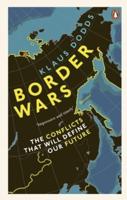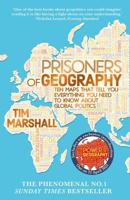Publisher's Synopsis
Schiller Institute President Helga Zepp-LaRouche gave a keynote address to the Maritime Silk Road conference in Zhuhai, in China's Guangdong Province, on Nov. 29. Her address has been edited. "You, the Chinese people, find yourselves at a very decisive moment in history, and I know that after President Xi Jinping put the Belt and Road Initiative (BRI) on the agenda a little over four years ago, and the tremendous success of the policy of a New Silk Road since then, that you are completely aware of the extraordinary role China is now playing from the standpoint of the universal history of mankind. But let me share with you the view of a German-or actually, I see myself as an universal citizen, looking at what China is doing from the outside, from an international perspective. For all the centuries up to now, from the earliest manifestations of human civilization, tribes, ethnic groups, nations or alliances of nations have pursued their self-perceived interests by various means-by negotiations, by diplomacy, and if this did not work out, by armed conflict and war. Geopolitics-the idea that a nation or group of nations has the right to pursue their interest against another group of nations-has led to two World Wars in the Twentieth Century. It should be obvious to anyone, that in the age of thermonuclear weapons, war can no longer be a method of settling conflicts, if we as a human species are not to bring about our own annihilation. Humanity is distinct from all other species known in the universe so far, in that we are capable of creative reason. This means that we, unlike the animal species, can consciously change our mode of our existence, continuously discover new universal principles in science and culture, and develop a deeper and more profound knowledge about the physical universe, of which we are the most important part. So in a certain sense it is lawful that mankind would come up with the idea of how to overcome geopolitics, and establish a system of self-governance, which would guarantee the long-term survivability of humanity. The concept of a "community of a shared future of mankind" presented by President Xi Jinping, is exactly that idea. By placing the notion of the one single mankind, defined from the standpoint of our common future, as the reference point for how to think about political, economic, social and cultural issues, President Xi has established a higher level of reason, a conceptual basis for a peace order throughout the planet. It is no coincidence that the concept for an entirely new paradigm in human history would come from China, as it is coherent with the 2,500 year-old Confucian tradition. The economic dimension of this idea is expressed in the Belt and Road Initiative, the New Silk Road proposal which Xi presented in September 2013 in Kazakhstan. In the very short period of four years, this initiative for "win-win" cooperation has become the largest infrastructure program in history, developing six large economic corridors, numerous rail lines in Eurasia and Africa, ports, airports, industrial parks, power projects, water management, etc., with more than 70 countries participating. It is now twelve times bigger than the Marshall Plan in Europe in the reconstruction period after World War II, and it is open-ended. In Africa the "New Silk Road Spirit" has completely changed the outlook of the participating countries. For the first time after centuries of suffering from colonial oppression and a lack of financing, now, because of Chinese investments there is the perspective of overcoming poverty and underdevelopment in the near future. This has created an unprecedented sense of optimism."









